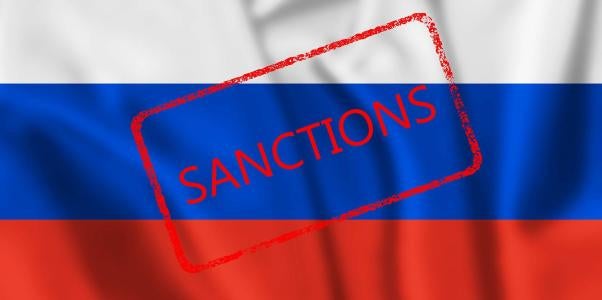A non-binding passage in a recent Court of Appeal judgment has suggested that any company based in or incorporated in Russia could be subject to the same UK sanctions as Vladimir Putin. The UK Foreign, Commonwealth and Development Office (UK Foreign Office) later released a statement disagreeing with the Court of Appeal’s commentary, but where does this leave UK sanctions law and what could happen next?
COURT OF APPEAL JUDGMENT
The non-binding “obiter” passage was contained in the 6 October 2023 judgment of Mints and others v PJSC National Bank and others [2023] EWCA Civ 1132 (Judgment). One of the issues in dispute in the Mints case was whether the claimant Russian bank could be considered sanctioned where the bank is not a personal asset of a UK designated person but a UK designated person is able to exert influence over it by virtue of the political office that he or she holds at the relevant time.
Although the Court of Appeal’s comments on control are not binding, they may be considered persuasive by future courts or tribunals, particularly since it is a decision of the Court of Appeal—the second highest court in England and Wales.
RELEVANT PARTS OF THE JUDGMENT
The Judgment spans 233 paragraphs, but only paragraphs 226–233 of the Judgment address the Court’s interpretation of “ownership and control” in Regulation 7 of The Russia (Sanctions) (EU Exit) Regulations 2019 (as amended) (Russia Regulations).
Under UK law, persons are sanctioned if they are “designated” by the UK government. However, persons can also be subject to UK sanctions if the “ownership and control” test in Regulation 7 of the Russia Regulations is satisfied. This test prescribes that if an entity is owned or controlled by a UK designated person, then that entity will also be considered subject to the same sanctions as the UK designated person.
On the issue of ownership and control, the lower court, whose decision was being appealed, had opined that there was a carve-out for control by political office. The Court of Appeal specifically commented that there was no carve-out from Regulation 7(4) of the Russia Regulations for control through political office. In other words, the control test can be satisfied by virtue of a designated person having control through their political office, in addition to via a corporate office/position or other means of control (see paragraph 231). The Court commented that, in consequence, “Mr Putin could be deemed to control [for the purposes of the Russia Regulations] everything in Russia” (emphasis added).
OUR OBSERVATIONS ON THE JUDGMENT
The Russia Regulations set out two alternative conditions for establishing ownership or control in relation to legal persons (i.e., not individuals):
- The first condition relates to direct or indirect holdings of shares or voting rights, or the ability to directly or indirectly appoint or remove a majority of the board of directors of an entity.
- The second condition is satisfied where “it is reasonable, having regard to all the circumstances, to expect that P would (if P chose to) be able, in most cases or in significant respects, by whatever means and whether directly or indirectly, to achieve the result that the affairs of C are conducted in accordance with P’s wishes.”
The comments in the Judgment noted above are relevant to the second condition. Those comments state that if a person (P) is able to “call the shots” in relation to an entity (C) by means of their political office, P will satisfy the second condition and have control of C.
The “control” issue was immaterial to the Court of Appeal’s final decision in the Mints case, and so, the Court of Appeal’s opinion on this issue is not binding. Nevertheless, the Court of Appeal felt compelled to give a non-binding statement on what the “control” test means. This statement declared that because Mr. Putin is at the apex of a command economy, he could be considered as being in control of every company in Russia. Therefore, because Mr. Putin is a person designated under the UK sanctions regime, every company in Russia could be considered as subject to the same sanctions as Mr. Putin.
GOVERNMENT STATEMENT
The Court of Appeal’s non-binding opinion quickly drew the UK Foreign Office to release a statement disagreeing with the Court and revealing the UK government was exploring options to bring certainty to this extremely important issue.
This statement supports the view that there would need to be an assessment of whether the relevant public official has control over a particular private entity in each specific case and that there is no presumption of control by such an official.
The statement from the UK Foreign Office also provided insight into how the UK Foreign Office and Office of Financial Sanctions Implementation (OFSI) assess and enforce the “control” test. Namely, the statement suggests that the UK government makes its assessment of what entities are controlled by a designated political official at the time the individual is designated. Therefore, if the UK government believes an entity to be controlled by a designated political official, this entity would also be designated directly by the UK government rather than any reliance being placed on the interpretation of control.
WHERE DOES THIS LEAVE YOU?
The potential consequences of the regulatory drafting of the “control” test and subsequent designation of Mr. Putin as a sanctioned individual appear to be at risk of resulting in unintentional outcomes that are far more wide-ranging than was envisioned by the UK government. It seems the purpose of the non-binding statement in Mints was to point out a supposed flaw in the drafting of the Russia Regulations and challenge the UK government to resolve it. The Court of Appeal’s obiter statement appears to have been provided in full knowledge that it was never the UK government’s intention to produce a “control” test that sanctions every company in Russia.
The UK government is likely to consider the following three options for resolving the position:
- Change the “control” test. Even a small change could impact companies’ exposure to UK sanctions and may again result in unintentional consequences.
- Remove the designation of Mr. Putin and introduce a new scheme to sanction Mr. Putin and others in political office. This could create a new area of focus for the UK sanctions regime.
- Issue guidance on the UK Foreign Office and OFSI’s approach to implementing the UK sanctions regime, including how this approach should be interpreted by those who are subject to the UK sanctions regime. The challenge with this approach is that courts may not consider themselves to be bound by such guidance when having to consider the issue of control in future cases.
In the wake of the Judgment and the UK Foreign Office statement, individuals and corporates will need to ensure that they:
- Understand their unique exposure to the UK sanctions regime and how this exposure is shaped by their present, and planned, activities and business operations.
- Ensure they are in a position to review their sanctions exposure in light of potential changes to how the various sanctions requirements will be interpreted by the UK government agencies and UK courts.





 i
i


